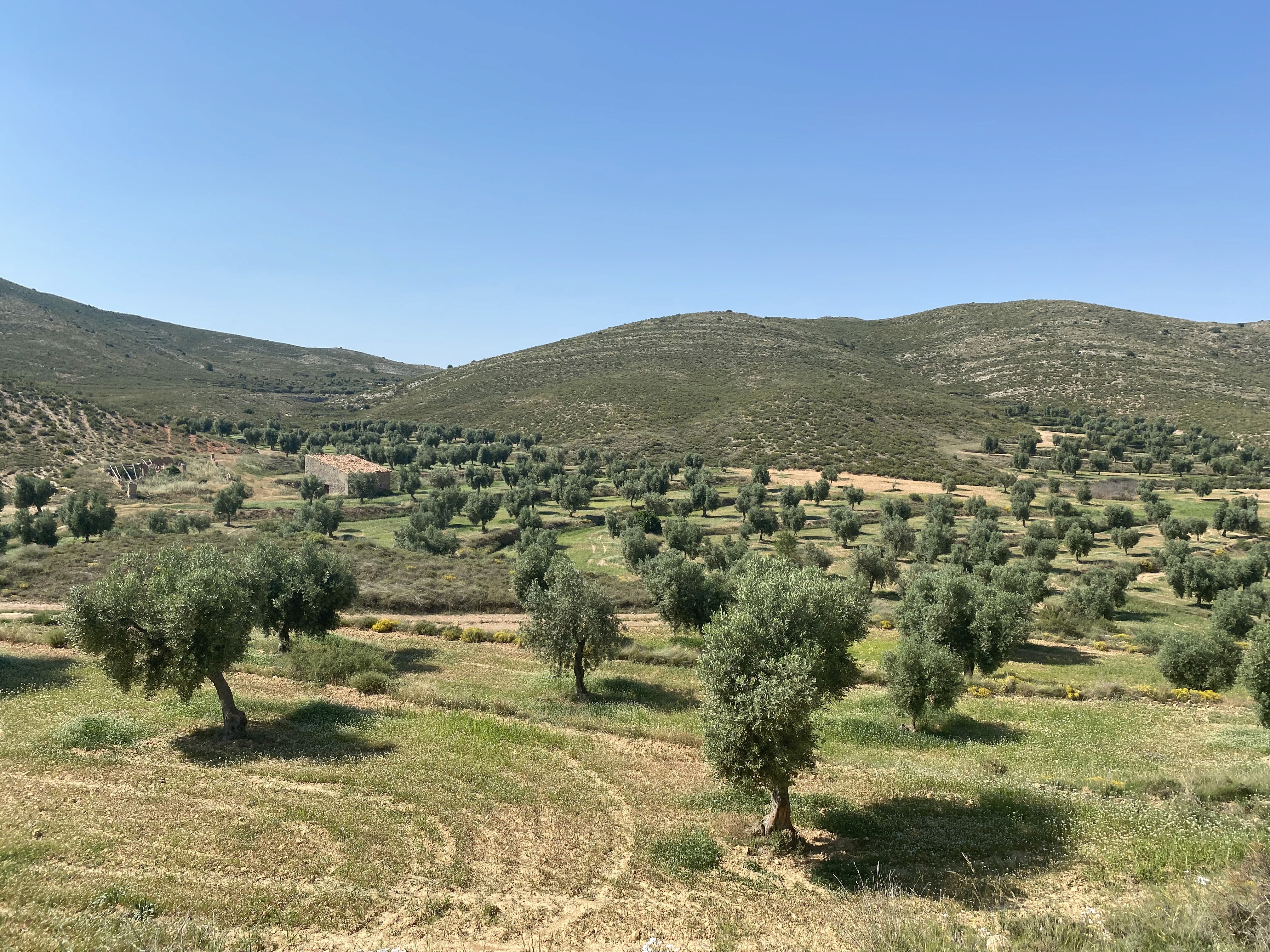Regenerative tourism
Regenerative tourism
RurAll: Revitalise Rural Areas in Spain
RurAll: Revitalise Rural Areas in Spain
15 de octubre de 2024
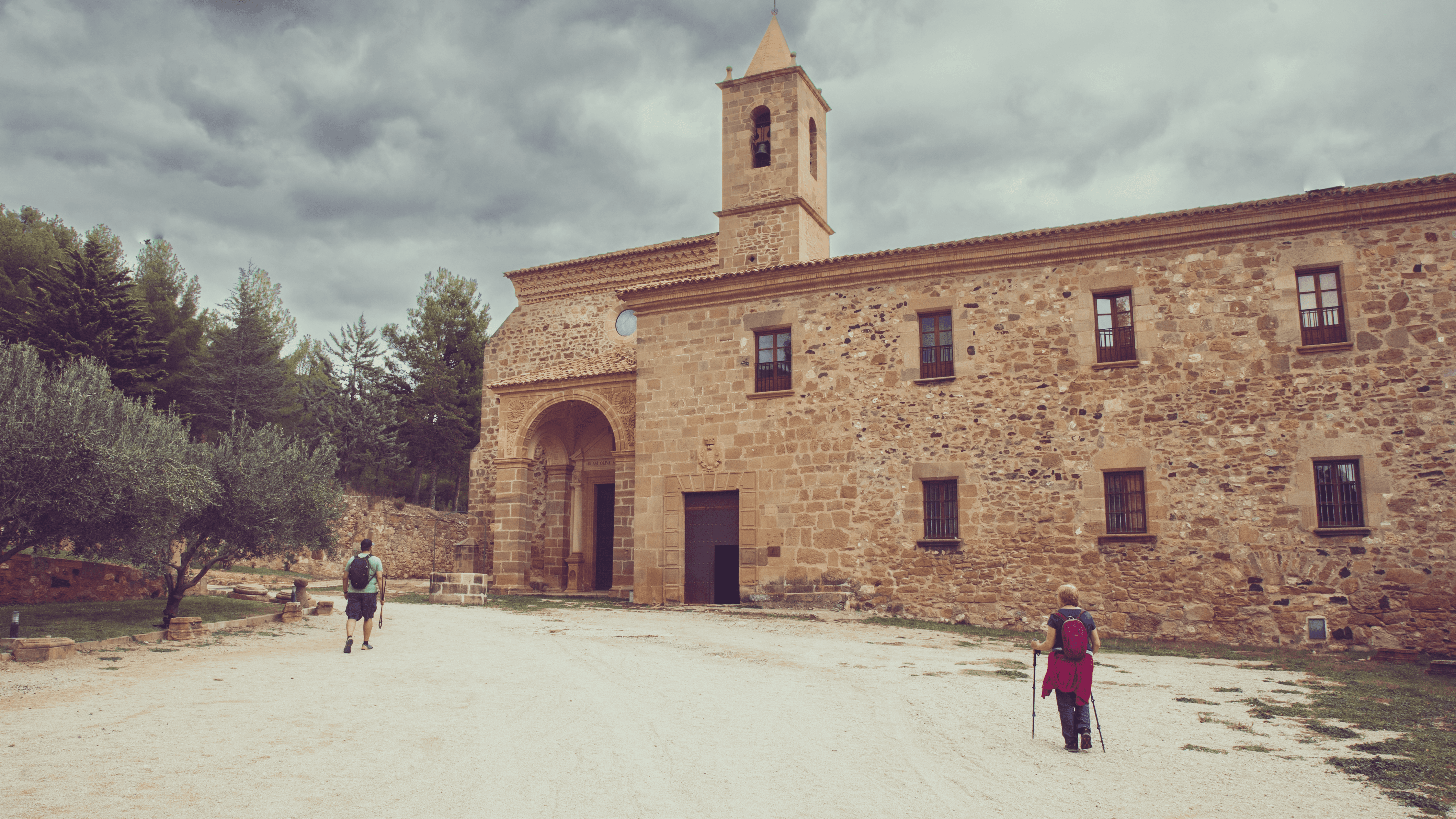

By Paco Rodríguez, Head of the tourism area.
The RurAll project - Inclusive Experiences against Depopulation - concluded its journey after nearly two years working on the revitalization of 5 rural areas in Spain through a collaborative and inclusive approach. This was done with the support of the Sepúlveda Town Hall at the Bretón Theatre in the Segovian municipality and with the assistance of institutions, collaborators, and locals.
This project, funded by the European Union – Next Generation EU and the Ministry of Industry, Trade and Tourism, has been driven and coordinated by Ideas for Change with the support of a consortium and a network of local collaborators. Apadrinaunolivo.org, Sentir el Alto Tajo, Membranding and Aehtnic have been the members of the consortium that have made this project tangible.
Since its inception, the objective of RurAll has been to empower rural communities through regenerative tourism and the creation of cooperation networks between territories. Throughout this article, we will explore the main phases, achievements, and lessons learned from the project, which has laid the groundwork for innovative, inclusive, and committed actions that combat depopulation.
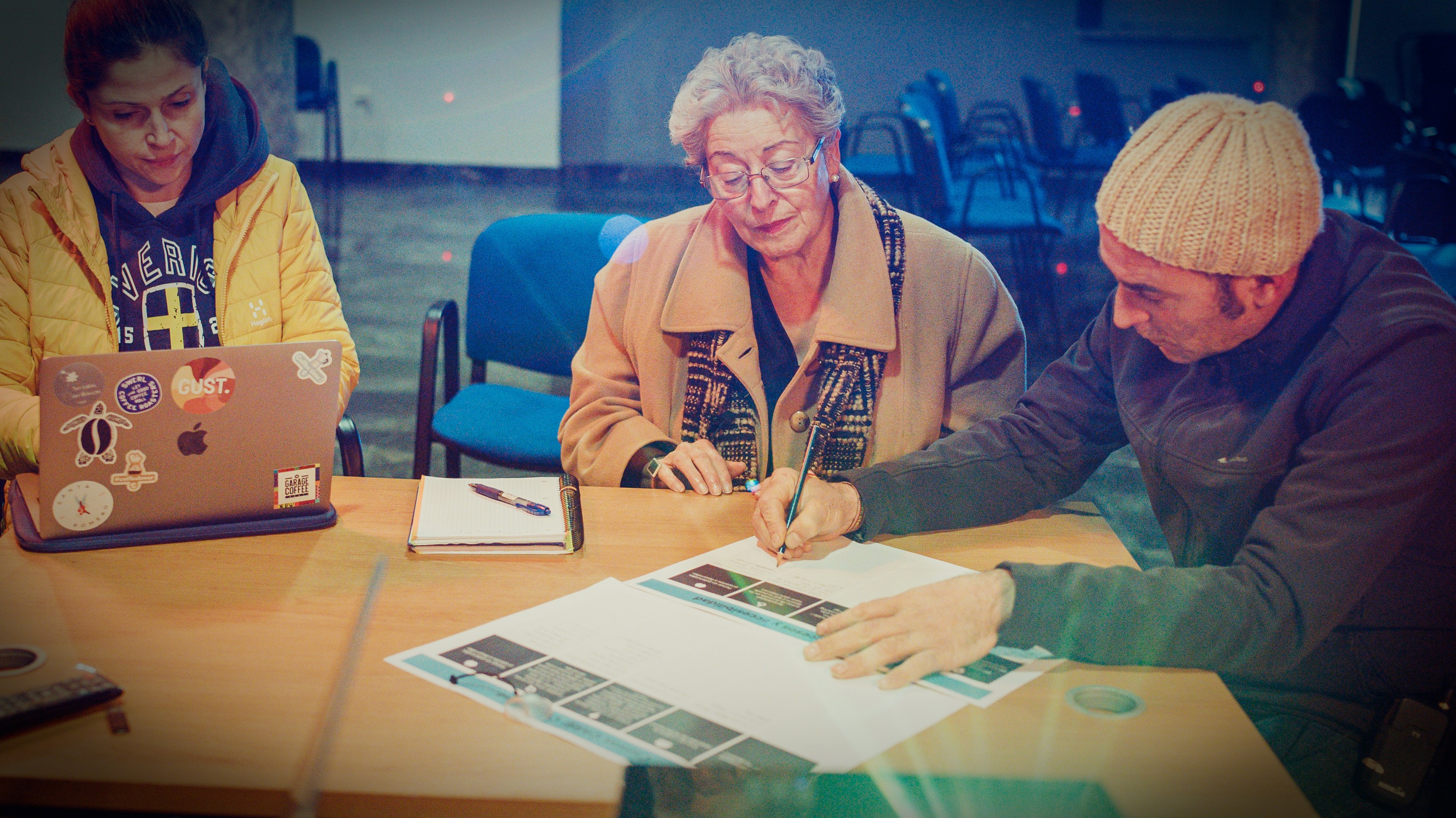
5 PHASES
The RurAll project was structured into five main phases that comprehensively addressed the challenges of the territories, ensuring effective action implementation and a real long-term impact. These phases were designed for the inclusion of communities in the development of a tourism model with a regenerative approach, creating synergies among the different local actors and promoting innovation and scalability of good practices in the territories.
Phase 0 - Research
The first phase of the project was fundamental to establishing the foundations of what would be an effective collaboration with rural communities. During this phase, Ideas for Change conducted in-depth analyses to identify opportunities, needs, and potential of the selected territories. In addition, local agents were mobilized through interviews and meetings, applying a “snowball” strategy that allowed for the identification of key leaders and organizations in each territory. This initial work was essential to gain the trust of the local communities and ensure their active involvement throughout the project.
Phase 1 and 2 - Destination Development and Replication: Execution of Workshops in Origin and Destination Territories
After conducting interviews with key actors and receiving their help for community mobilization, participatory workshops were scheduled in each of the 5 territories, among which we distinguished the origin territories (those with good practices to replicate - Oliete and Comarca Molina de Aragón Alto-Tajo), and the destination territories (those that would receive the replication of good practices - Estercuel, Sepúlveda and Chiclana de Segura). The objective of the workshops was to work together and participatively with the local population of each territory for the tourism development of these.
For this, the methodology CARE - Capacity, Accessibility, Resources and Environment - of regenerative and inclusive tourism development was used, as well as the Tourist Empathy Map. Based on this methodology, the participating locals conceptualized and designed the model most suitable for their territories, always based on criteria of sustainability, accessibility, and inclusion. In addition, these workshops were utilized to work alongside the partners from Membranding on the local brand identity of each destination, a fundamental tool for the tourist promotion of the same.
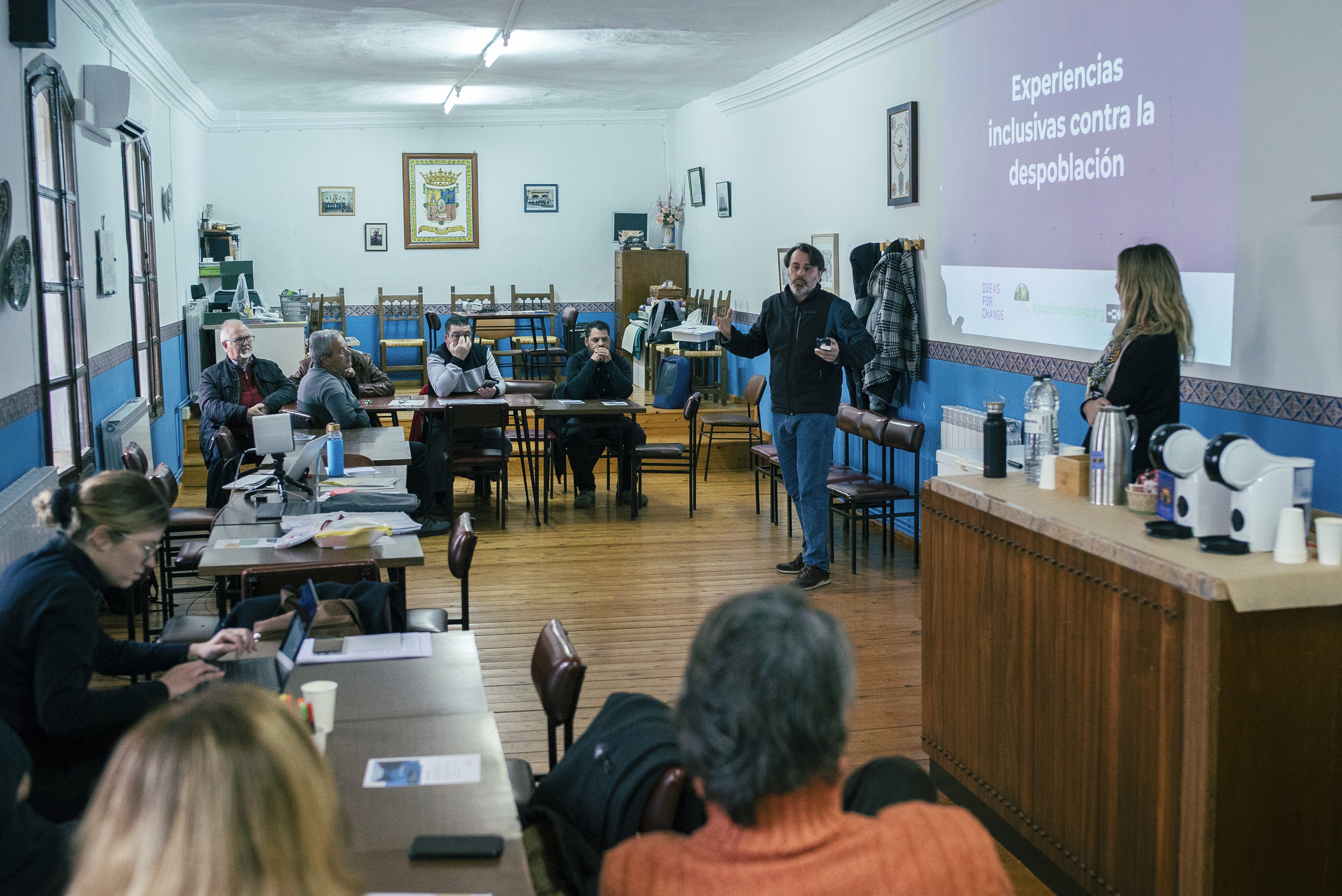
Phase 3 - Development of the RurAll Network and Cross-sectional Workshops
Once an idea of how the local population wanted to develop tourism in their territory was obtained, organization and transversal guidelines had to be established. On one side, the organization and collaboration between actors and territories was essential to increase the project's success. Therefore, developing the RurAll Network of inclusive regenerative destinations and the mechanisms for participation of the different involved actors was vital.
On the other hand, working on cross-cutting issues for all territories and actors was fundamental for the inclusivity axis of the project. Therefore, various workshops were held on marketing, accessibility, and gender and rurality, in order to emphasize the importance of both issues in such a specific context as rural areas.
Phase 4 - Dissemination
Once the previous stages were completed, it was time to place the work done and the achievements made with the project at the center of the narrative. On one side, all the information related to it was compiled in the RurAll Book, with the aim that inclusive tourism practices could be replicated in other territories, thus contributing to the fight against depopulation. On the other hand, work was done on the production of a documentary video to showcase the progress of the project and the reality of these small villages today at high risk of disappearing.
Both materials were presented at the event that concluded the project, which took place on September 18 at the Bretón Theatre in Sepúlveda, Segovia, thanks to the support and collaboration of its Town Hall. During the event, there was institutional presence from the mayor of Sepúlveda and the Secretary of State for Tourism, as well as participation from consortium members, collaborating partners, and locals from the different territories.
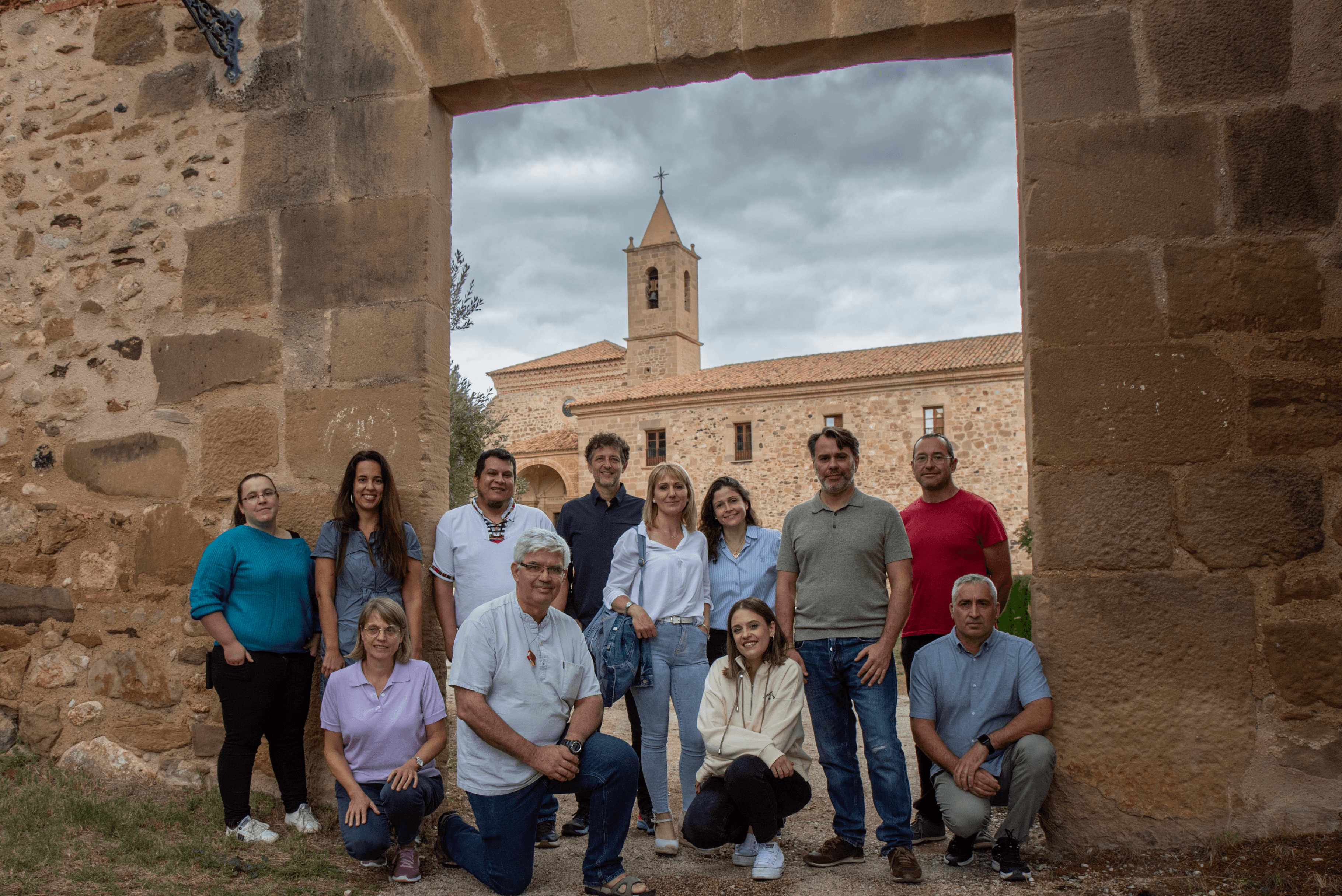
Among the main achievements of the project and, after two years of hard work, over 70 consortium meetings and 10 trips to the field, we can highlight:
Conducted more than 8 in-person workshops for the development of participatory, inclusive, and accessible tourist destinations.
More than 10 online meetings with the communities (creation of the RurAll Network, gender workshops, and marketing of new products and tourist projects).
Development of 5 local brand identities for the territories with 7 additional ones designed for local actors and other territories.
3 mentored projects.
Formulation of 4 new experiences up to now.
Generation of 1 multi-territorial network with a website with information about the experiences offered and the territories.
Creation of a system for measuring impact.
Production of 2 documentary videos.
Production of a compilation book in open format for the replication of the project by third parties.
On our part, we can extract as main lessons from this project:
The choice of territory is key. For the project to permeate among the resident population, their participation and the existence of active and well-connected local partners willing to contribute and exert attraction on their community is essential.
Finding community champions - locating and adding these key local partners is vital. To find, know, and mobilize them, the application of the so-called “snowball strategy” was essential.
The search for the uniqueness of the destination should be developed through participatory work, promoting debate among residents during all stages of the process.
Creating a unique identity for the destination unites the local community and fosters pride and a sense of belonging among the area's residents.
Creating new projects turns into an arduous task. For greater scalability, reach, and impact of projects, it is necessary to find a higher degree of support, both from the public and private spheres at different levels and scales, in order to row in the same direction.
The Network requires commitment, care, and follow-up from the local communities that make it up for its current and future viability and usability.
The RurAll project has demonstrated that the combination of tourism + depopulation can be an effective model for combating rural depopulation through a regenerative and inclusive approach. Throughout its phases, advances have been made in the co-creation of sustainable and accessible destinations, and a network of promotion and cooperation between territories has been consolidated, ensuring a grounded and lasting implementation thanks to the active involvement of local communities.
By Paco Rodríguez, Head of the tourism area.
The RurAll project - Inclusive Experiences against Depopulation - concluded its journey after nearly two years working on the revitalization of 5 rural areas in Spain through a collaborative and inclusive approach. This was done with the support of the Sepúlveda Town Hall at the Bretón Theatre in the Segovian municipality and with the assistance of institutions, collaborators, and locals.
This project, funded by the European Union – Next Generation EU and the Ministry of Industry, Trade and Tourism, has been driven and coordinated by Ideas for Change with the support of a consortium and a network of local collaborators. Apadrinaunolivo.org, Sentir el Alto Tajo, Membranding and Aehtnic have been the members of the consortium that have made this project tangible.
Since its inception, the objective of RurAll has been to empower rural communities through regenerative tourism and the creation of cooperation networks between territories. Throughout this article, we will explore the main phases, achievements, and lessons learned from the project, which has laid the groundwork for innovative, inclusive, and committed actions that combat depopulation.

5 PHASES
The RurAll project was structured into five main phases that comprehensively addressed the challenges of the territories, ensuring effective action implementation and a real long-term impact. These phases were designed for the inclusion of communities in the development of a tourism model with a regenerative approach, creating synergies among the different local actors and promoting innovation and scalability of good practices in the territories.
Phase 0 - Research
The first phase of the project was fundamental to establishing the foundations of what would be an effective collaboration with rural communities. During this phase, Ideas for Change conducted in-depth analyses to identify opportunities, needs, and potential of the selected territories. In addition, local agents were mobilized through interviews and meetings, applying a “snowball” strategy that allowed for the identification of key leaders and organizations in each territory. This initial work was essential to gain the trust of the local communities and ensure their active involvement throughout the project.
Phase 1 and 2 - Destination Development and Replication: Execution of Workshops in Origin and Destination Territories
After conducting interviews with key actors and receiving their help for community mobilization, participatory workshops were scheduled in each of the 5 territories, among which we distinguished the origin territories (those with good practices to replicate - Oliete and Comarca Molina de Aragón Alto-Tajo), and the destination territories (those that would receive the replication of good practices - Estercuel, Sepúlveda and Chiclana de Segura). The objective of the workshops was to work together and participatively with the local population of each territory for the tourism development of these.
For this, the methodology CARE - Capacity, Accessibility, Resources and Environment - of regenerative and inclusive tourism development was used, as well as the Tourist Empathy Map. Based on this methodology, the participating locals conceptualized and designed the model most suitable for their territories, always based on criteria of sustainability, accessibility, and inclusion. In addition, these workshops were utilized to work alongside the partners from Membranding on the local brand identity of each destination, a fundamental tool for the tourist promotion of the same.

Phase 3 - Development of the RurAll Network and Cross-sectional Workshops
Once an idea of how the local population wanted to develop tourism in their territory was obtained, organization and transversal guidelines had to be established. On one side, the organization and collaboration between actors and territories was essential to increase the project's success. Therefore, developing the RurAll Network of inclusive regenerative destinations and the mechanisms for participation of the different involved actors was vital.
On the other hand, working on cross-cutting issues for all territories and actors was fundamental for the inclusivity axis of the project. Therefore, various workshops were held on marketing, accessibility, and gender and rurality, in order to emphasize the importance of both issues in such a specific context as rural areas.
Phase 4 - Dissemination
Once the previous stages were completed, it was time to place the work done and the achievements made with the project at the center of the narrative. On one side, all the information related to it was compiled in the RurAll Book, with the aim that inclusive tourism practices could be replicated in other territories, thus contributing to the fight against depopulation. On the other hand, work was done on the production of a documentary video to showcase the progress of the project and the reality of these small villages today at high risk of disappearing.
Both materials were presented at the event that concluded the project, which took place on September 18 at the Bretón Theatre in Sepúlveda, Segovia, thanks to the support and collaboration of its Town Hall. During the event, there was institutional presence from the mayor of Sepúlveda and the Secretary of State for Tourism, as well as participation from consortium members, collaborating partners, and locals from the different territories.

Among the main achievements of the project and, after two years of hard work, over 70 consortium meetings and 10 trips to the field, we can highlight:
Conducted more than 8 in-person workshops for the development of participatory, inclusive, and accessible tourist destinations.
More than 10 online meetings with the communities (creation of the RurAll Network, gender workshops, and marketing of new products and tourist projects).
Development of 5 local brand identities for the territories with 7 additional ones designed for local actors and other territories.
3 mentored projects.
Formulation of 4 new experiences up to now.
Generation of 1 multi-territorial network with a website with information about the experiences offered and the territories.
Creation of a system for measuring impact.
Production of 2 documentary videos.
Production of a compilation book in open format for the replication of the project by third parties.
On our part, we can extract as main lessons from this project:
The choice of territory is key. For the project to permeate among the resident population, their participation and the existence of active and well-connected local partners willing to contribute and exert attraction on their community is essential.
Finding community champions - locating and adding these key local partners is vital. To find, know, and mobilize them, the application of the so-called “snowball strategy” was essential.
The search for the uniqueness of the destination should be developed through participatory work, promoting debate among residents during all stages of the process.
Creating a unique identity for the destination unites the local community and fosters pride and a sense of belonging among the area's residents.
Creating new projects turns into an arduous task. For greater scalability, reach, and impact of projects, it is necessary to find a higher degree of support, both from the public and private spheres at different levels and scales, in order to row in the same direction.
The Network requires commitment, care, and follow-up from the local communities that make it up for its current and future viability and usability.
The RurAll project has demonstrated that the combination of tourism + depopulation can be an effective model for combating rural depopulation through a regenerative and inclusive approach. Throughout its phases, advances have been made in the co-creation of sustainable and accessible destinations, and a network of promotion and cooperation between territories has been consolidated, ensuring a grounded and lasting implementation thanks to the active involvement of local communities.


